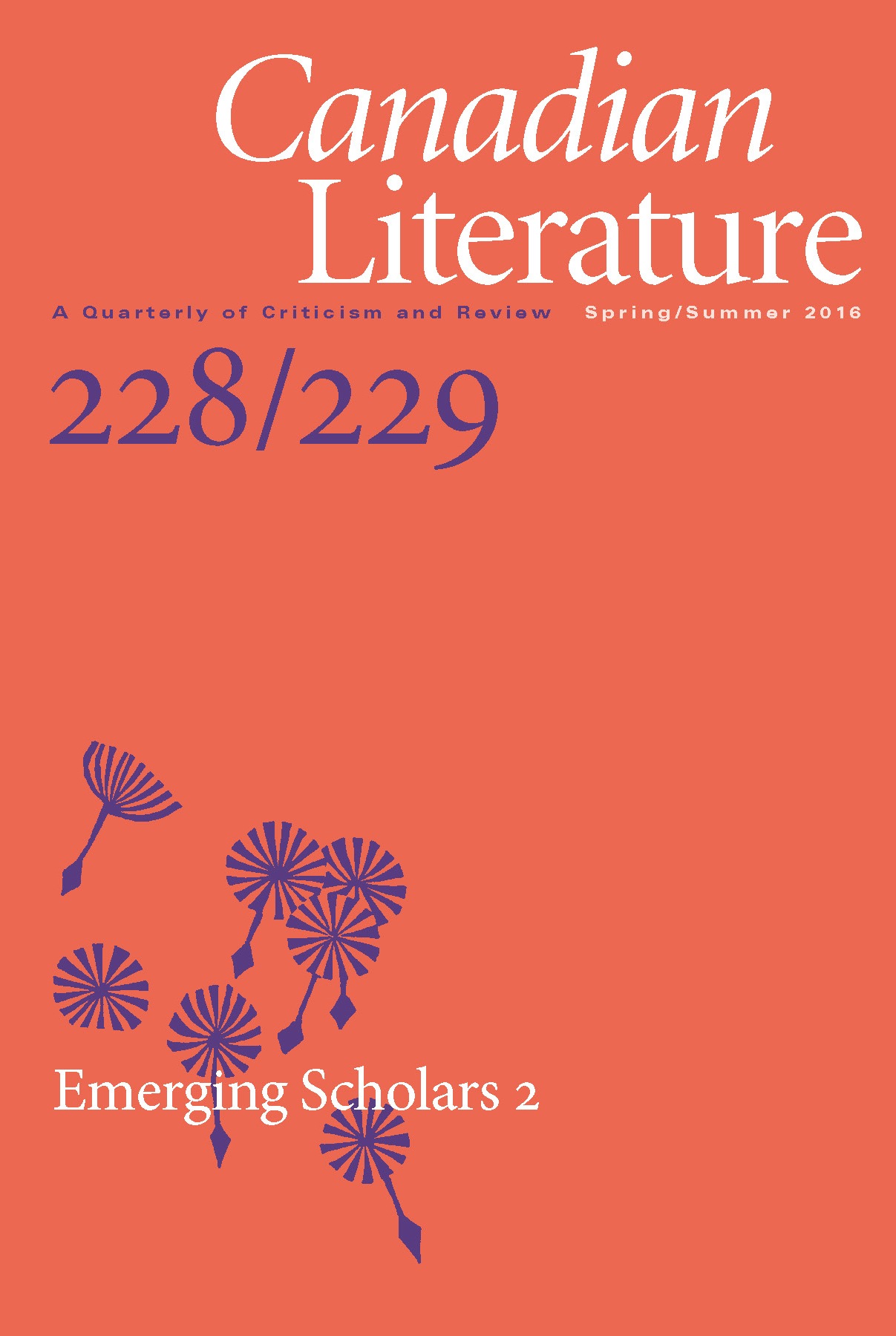‘It is life you must write about’: Fixity and Refraction in Dionne Brand’s A Map to the Door of No Return: Notes to Belonging
DOI :
https://doi.org/10.14288/cl.v0i228-9.187594Résumé
Though many discussions of diaspora emphasize metaphors of mobility, Brand’s Map to the Door of No Return: Notes to Belonging uses moments of fixity and excess to think through the epistemological and embodied effects of the history and ongoing effects of slavery and to challenge the limitations of dominant readings of these approaches. To make this argument, I read Map in relation to auto/biography studies to see the parallel ways in which it emphasizes the importance of “illegitimate” sites of knowledge, but I then move to emphasize the moments that the text exceeds the genre of auto/biography when Brand moves to write about larger scale histories and memories to which she would not have literal access, but to which she certainly has experiential access. Relatedly, I consider the ways that the text uses fixity to emphasize how histories are written on the body, whether they were directly experienced or not.


